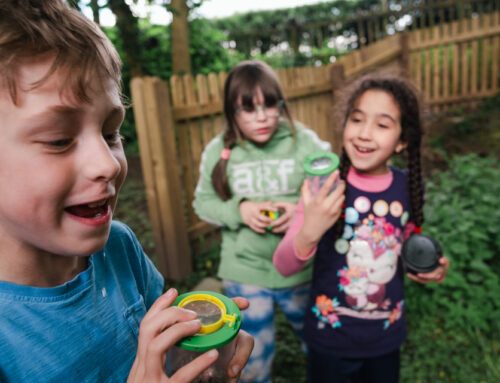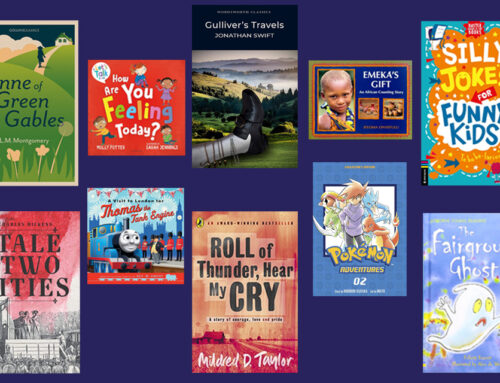Often, when choosing GCSE options at school, students open up about their dilemmas – “I want to do Drama, but it clashes with something that my parents think will be more useful in life.” It will come as no surprise that most people with a deep interest in the performing arts will say to these students “do drama”; but why is this option often regarded as not ‘useful’ and how can it be such a powerful tool in the development of children?
Of course, for GCSE, much of Drama or Theatre Studies has its base in theory, dramatists and practitioners – so by this stage in a child’s learning they have grasped that it’s not all about them being ‘on stage’. But there is still a misconception that ‘Drama’ is all about just that – putting on plays, costumes, lights, and an audience to perform to and this can lead to the conclusion that it’s not a serious or useful subject, but just a bit of light-hearted fun to do as an extra curricular activity. However, while acknowledging the performance aspect is significant, it is a relatively minor part of the importance that learning through drama brings to the development of a child, and this is perhaps what we should focus on when looking at the subject as a whole.
When we go back to the early days, children’s learning through drama – as it is in most areas of life – is all about play. Expressing emotions, feelings, and actions through a series of games and fun exercises, thereby allowing them to explore things in a natural, unforced way in a classroom environment is always the key element to success. That is, not to say that they shouldn’t be stretched and focused within those exercises to enhance development, but play maximises on the child’s enthusiasm for this familiar method of discovery and is vital in opening up a gateway to individual expression in a gently-guided, but fully imaginative manner.
Key skills that develop in the early years of learning through drama include teamwork, socialisation and listening skills. It is not consistent – most children of a young age have the odd wobble – but by the age of 6 or 7, there are clear signs that these disciplines start to take effect. Students begin to lose the fear of just ‘giving it a go’ as they experience confidence that they have a supportive team behind them and, in return, they begin to support their fellow classmates by listening and appreciating each other’s ideas and work. With the use of the imagination constantly at the fore in class, their development can be pushed to discover new and unknown areas by encouraging children to question, pose problems, listen, understand and support – all within the safe confines of a guided, focussed environment.
This release of physical inhibitions through play is one that is fascinating to witness in the teaching of drama but is often overlooked or described as unimportant. Very often we hear that “doing drama” is great for the building of confidence or self-esteem in a child but in actual fact this release of energy through play is perhaps more vital to their development and the freedom of their thinking. Indeed, as we go through life, we discover far more if we allow ourselves to free up our imagination and our possibilities. It is through this open-mindedness that we acknowledge much can be achieved or overcome, and, if we put ourselves in other people’s shoes, we often have a much more rounded view of life and the choices we make. For a child therefore, the idea of putting on a different role or character or pretending that they are in an unknown or extraordinary situation – all through the safe basis of ‘play’ – allows them to overcome difficulties and inhibitions and therefore unself-consciously they take emotional and physical risks.
We know that invented situations or scenarios are clearly important to create any sort of drama – whether in plays, tv series, ballet, opera, film and so on. Allowing children to put themselves into these scenarios and to create roles that give them a level of expertise in these situations was the basis on which Dorothy Heathcote – the renowned teacher and academic – devised her strategy regarding the “mantle of the expert”. This approach explores a child’s teaching and development with regard to discovering how they deal with a situation from a position of authority, thereby giving them a feeling of self-worth and bringing a serious attitude to the subject. By exploring these ‘unreal’ scenarios, a child will often use and extend methodical, scientific, geographical, historical and linguistical skills into play without really thinking about them in the academic sense – all crucial development points in any learning environment, let alone the drama studio. In addition to this they may experience the dilemma posed by their ‘knowledge’ or expertise which brings into focus a level of responsibility, differing attitudes and fundamental morals faced by them and society in general.
In terms of specific areas of development, learning through or studying drama can have a huge impact on many areas. For example:
Language – this brings into focus the key skills of questioning, instructing, persuading, advising and debating. As members of society we all need to acquire these skills but learning through drama can be a key method of developing these in a creative, mind-freeing environment and bring about a much more sympathetic approach.
Understanding Different Points of View – drama, through the use of role play and simulations allows a crucial exploration of subjects in a controlled, yet ‘real’ environment. Subjects such as bullying, discrimination, mental health and other key issues in young lives are often discussed and tackled through dramatisation. This experimentation in a ‘safe’ and guided place brings into focus how others may feel and the struggles they may have, bringing clear development in understanding and modifying future behaviour within children.
Problem Solving – allowing the child to solve problems and evaluate outcomes across a wide range of subjects and contexts. How do our actions and speech inform or influence others? How does our thinking change? What bearing can this have on our moral choices?
Knowledge – often, working in drama spurs on the need to look further into a situation and character. This can be historical or scientific or even delve into the real lives of someone they are ‘playing’ at being, but drama as a subject opens the mind and incites a hunger to learn and research by exploring simple, scenario-based tasks.
Teamwork – crucial in the development of children, few academic subjects bring to the forefront the need to work and function together as a group. We must learn to listen, advise, sculpt and devise work which balances the needs of all involved. If there is no compromise in drama, there is little room for creativity and productivity.
So, with all of this in mind, we have to go back to our original dilemma and – with just this handful of examples – we can see that any form of studying drama clearly isn’t just about acting and performing. It also isn’t just about a child “finding their voice” or “building their confidence”. It’s an immersive, engaging activity that provides a rounded look at society and differing points of view. It develops communication and negotiation skills. It invokes a sense of responsibility for the individual and a sense of trust in others. Crucially, it builds an inner strength by allowing the imagination and freedom of thought to overcome anything. In terms of the development of a child and for future life skills, there could probably be nothing more “useful”.

Rachel Lewin trained at the Birmingham School of Speech & Drama after reading English & Drama at University. She worked as an actress for 12 years, before starting her career in youth theatre in 2001. Rachel works as a Director, Choreographer, Vocal Coach and Acting Tutor. When not working in youth theatre, she runs her own film and video production company, working in schools and with young people to inspire the next generation of film makers.






